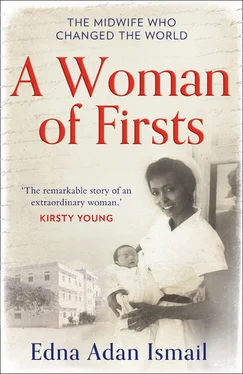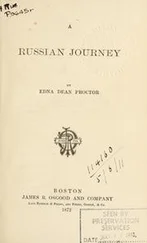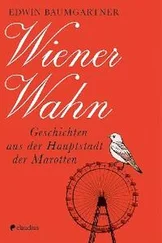For now I want to send comforting thoughts to the terrified eight-year-old me who was so bewildered and confused by the heinous thing that was done to her that she still weeps at the cruelty of it.
***
When I returned to Djibouti City at the end of that summer I could tell from the look in my Aunt Cecilia’s eyes that she knew what had been done to me. Not that she said anything – not even ‘sorry’. As I was fast learning, to say nothing about FGM is the considered wisdom among my people.
It was years before I realized that my mother and aunt, as Somali girls from a highly respected family, were also cut but would have been spared the most radical infibulation like mine, and that in French Somaliland Cecilia was free of the social and cultural pressure to have her own daughters ‘cleansed’. Rita, Madeleine and Gracie were all untouched, so I was the first daughter of my generation affected. My sister Asha was born in 1948 while I was away at school, and I hoped she would be spared. No such luck.
I now know that families are very often shamed into it, with friends and relatives warning them that their daughters will be spinsters because ‘Any husband would expect it.’ This is what happened to my mother, who had married young and moved to an environment very different to her childhood. She desperately wanted to fit in and be seen as a good Muslim wife who’d done the right thing for me. As the eldest child of Adan Doctor I had to be of impeccable moral standing.
The pressure to conform doesn’t only come from adults. Children pick up on the language and often tell an ‘uncut’ girl, ‘Keep away from me. Mummy says you still have your shame. You’re not halal .’ Without even knowing what the procedure involves, girls beg to be ‘cleansed’ so that they can be just like their friends. It is a mystery to them but a natural response from innocents who also want to fit in. And as in every country where female circumcision is practised, religion plays no part because it happens to all girls, be they Christian, Muslim or from a pagan background. There is little chance of escape.
Djibouti City, French Somaliland, 1947
Settling back into my parallel life in a place far from home was all part of the healing process and I embraced my schooling with new fervour. I was there from 1946–1952 and I loved every minute, even though I had the bittersweet knowledge that when I returned to Somaliland my education couldn’t be continued.
My brother Farah, who I hardly knew but who joined me at my Aunt Cecilia’s when he was eight years old, became my daily companion as we held hands each morning waiting for the school bus. He also embraced our new life in French Somaliland and, in time, we became very close.
We still went back home each summer, spending time with my parents and then holidaying with my grandparents in the country. As soon as school broke up, Farah and I would be driven from Djibouti City to wherever Dad was working, a journey of three or four days. He was usually too busy to pick us up himself, so would send a relative who might also collect other children. For us the journey was the greatest excitement of all, as we passed trees festooned with goats nibbling at the branches, as well as camel herds and donkey caravans in every kind of landscape. One trip home took nine days because of heavy rains. A distant aunt had secured us seats in a truck heavily laden with commercial goods that then became stuck in the mud. There were no phones or other cars on the road to ask for help, so everyone had to help dig it out. Our family knew we were en route but when we didn’t show up as expected they were very worried. The only foods we had were onions, salt, tamarind and sweet potatoes, which we roasted. It was on that trip that I learned that peeled bark from an acacia tree could be boiled to make a tea called asal . It was cold at night so we drank it to keep warm. Asal is also good for cleaning wounds and sterilizing vessels – a fact I logged for later use.
My brother and I didn’t mind being stuck in the middle of nowhere because it felt like a free holiday. The truck was carrying so many interesting people from different tribes all riding on the top, which was heavily laden with goods. My aunt paid extra for us to sleep in the cab at night for safety from wild animals, but Farah and I longed to be up on the roof where our fellow passengers hung off ropes on the sides telling poems and singing songs. There were arguments and running battles, there was love and jealousy and friendship. All of life was there.
Desperate to join them, Farah and I would seek out an old woman or a mother and child and offer them our seats. My aunt praised us for our kindness, never quite appreciating that we did it only so that we could swap places and climb up under the stars to inhale the sweat and the tobacco smoke and listen agog to all the stories.
Life as a child in Africa was such a big adventure.
I always loved reconnecting with my father who’d occasionally take time off to bring us home. I remember him driving us back once and letting me hold the steering wheel while sitting on his lap. Mother was screaming from the back seat, ‘Don’t let Edna drive, Adan, she’ll kill us all!’ Dad just laughed and promised to go slowly, letting me steer the car for miles down those bumpy roads and sparking my lifelong love of driving.
Those first summers after my ordeal were when I first started going with him each day to the hospital in Erigavo, the northeastern capital where he was living and working on yet another two-year rotation. I would walk him to the door as I did when I was small but now I’d carry on inside, chattering away and willing to offer my assistance. I was always much happier rolling bandages or washing Dad’s medical instruments than peeling potatoes for Mum and – after several catastrophes in the kitchen – she accepted that it was probably better that I didn’t help her after all. If we had people coming and I asked if she wanted me to do anything, her answer would be, ‘No, no! We have guests today’, which told me something about her opinion of my domestic skills. All her life I think Mum believed that my father had gained a daughter in me but that she never really had one. Whenever she told me crossly, ‘You’re just as bad as your father!’ she had no idea that it was the best compliment anyone could pay me.
When Dad came back from work for his meal, I’d be the first to greet him and would occasionally volunteer to make him something he liked. Goodness alone knows what it tasted like, but he always pretended it was delicious and made a big fuss of me. The one thing he especially liked during Ramadan was labania – custard made from rice. It was my job to make it – a process that took an entire day, as there was no custard powder back then. First I had to soak grains of fat rice until they expanded, then I had to drain them and scatter them onto a tray to dry in the sun. Then I’d have to pound and sieve it repeatedly until it was powdered, before slowly adding water so as not to make it lumpy. While it was cooking, I’d add cardamom, sugar and milk and then pour it onto little saucers and put them on the windowsill to set, as we had no refrigerator. Dad would taste it, grin and say, ‘Hmmm, this is soooo good, Shukri! Only my daughter could have made this. Did you make it? I knew you did!’ He made me feel like I owned a million camels.
***
I was twelve years old during the Year of Red Dust, our country’s worst drought in years, when I became indispensable to my father at the Erigavo hospital. He not only appreciated my help but also came to rely on it, especially when the drought and famine gave him so much extra work.
Читать дальше












